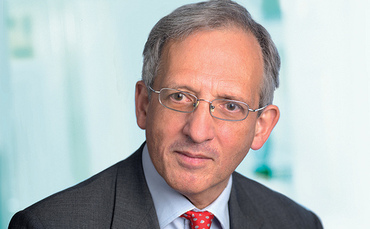The outgoing deputy, who is set to leave his post at the end of the month after ten years at the central bank, said in a speech at the Economics of Payments XII conference at the Federal Reserve in Washington DC that the UK will likely need a digital currency to keep up with competition in the sector, but also to maintain public confidence in money.
Bailey calls for 'public debate' on digital pound introduction
This was because new entrants to the digital currency space could offer new payments services tied to private issuers and their systems, which he argued could lead to concerns over competition and concentration.
"This may be a particular concern if ‘big tech' firms enter more deeply into payments and money. Competition and innovation may therefore be enhanced by providing a public alternative, a public digital money platform that allows private firms to offer services," he said.
That is why Cunliffe argued the introduction of a ‘digital pound' would need to happen as a "partnership with the private sector", under a platform model where the BoE provides the digital pound and central infrastructure, while private companies would provide the interface between the central bank and users.
Such a model would mean that the BoE and the government would not be able to see individual data, rather it would be handled by private firms in a similar way banks do today, with potentially even greater protections for customers' privacy.
Yet Cunliffe reiterated that physical cash will still be available - as pledged by the UK Government - "as long as there is demand for it".
He added the central bank expects to issue a detailed response to the digital pound consultation paper published in February 2023 alongside the Treasury in the coming months, to address the issues related to the role played by state money as well as competition and innovation.
Digital pound could launch within ten years under Treasury and BoE plans
He explained: "We are still in the process of the detailed analysis of all of the responses and, as I say, we aim to respond comprehensively in the coming months. But I would observe, if only a little tongue in cheek, that criticisms of the digital pound have ranged from concerns that it would be adopted at a scale and pace that would disintermediate the banking system and threaten financial stability, to, at the same time, concerns that there would be no use for it and it would be a ‘solution looking for a problem'.
"Not surprisingly, as an institution charged with maintaining financial stability, we take the first point very seriously. Modelled estimates suggest that even with a very high level of take-up, the impact over time on the banking system should be manageable."
Cunliffe said: "But these can only be estimates. We cannot know in advance the behavioural response of users to a digital pound - i.e. the scale and speed of take-up by households and firms. That is why we have proposed that, initially at any rate, were we to introduce a Digital Pound, there would need to be limits on holdings. During the next phase of development, and in advance of any decision on whether to introduce a digital pound, we would seek to refine, in the light of available evidence, our estimates of possible take-up and the consequent calibration of limits."
Overall, the outgoing deputy governor said there are clear, "material advantages" in pursuing a general purpose platform model for the introduction of the digital pound, so that it can be configured "relatively simply, consistently and cheaply for a broader range of user cases".
He continued: "In the next phase of the work, we will work more intensively with the private sector to explore possible use cases for a digital pound and the technological design necessary to create the best platform for innovation. At the same time, we and HM Treasury will consult more widely to stimulate a national conversation on the digital pound."


